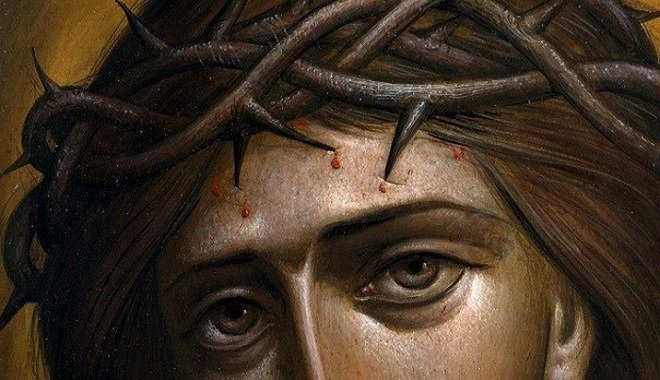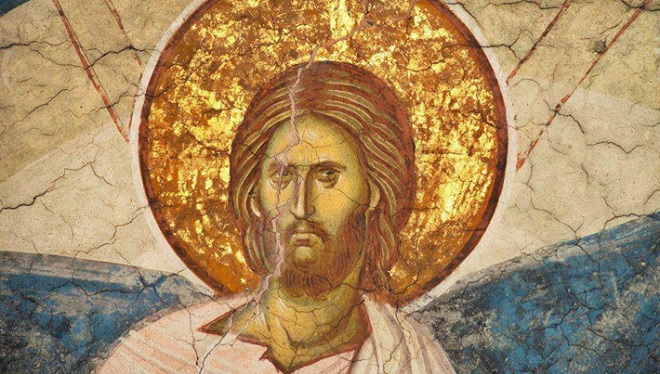The Three ‘Buts’ of Divine Mercy
13 April 2022We’re sinners. The beginning of ode 7 of the Great Canon is absolutely right about this: ‘We have sinned, we have transgressed, we have done evil in your sight; we have not kept or followed what you directed us to do’. It’s a fact that, on an everyday basis, we sin in our thoughts and deeds. We’re all too easily ensnared in the nets of the spiteful, evil one. We all become transgressors against God’s commandments. One person by committing this sin, another person by committing a different one. One more so, another less. One engaging in more serious sins, another in less serious ones. One out of ignorance, another by enticement and a third out of bad habit.
* The word of God is clear on this: ‘Who will boast of having a pure heart? Or who will have the boldness to claim that they are clean of sins?’ (Prov. 20, 9). Job the much-suffered was irreproachable and righteous. Yet he himself poses the question: ‘Who shall be clean of impurity? No-one, though their life on earth be but one day’ (Job 14, 4). This is the reality. Through the foolishness of our sins we often become crucifiers of the Lord again. We live in terrible delusion and self-deception regarding the meaning of sin and our guilt over our transgressions. What Saint John the Evangelist says is true on this score, however: ‘If we say we have no sin, we deceive ourselves and the truth is not in us’ (1 Jn. 1, 8).

Yet have we wept over the multitude of our sins? Have we been troubled, together with the hymnographer who writes: ‘You were crucified for me to become for me a source of forgiveness; your side was pierced so that you could shed streams of life for me’[Matins, Great Friday]? How can we present ourselves before the Lord? How can we proclaim that we’re Christians? And, especially if we’re clergy, how do we dare stand at the Holy Altar and celebrate the sacred and spotless divine mysteries, particularly the preeminent one, the Divine Liturgy?
* Nevertheless, the wisdom and love of the Lord often adds a grammatical conjunction to our prayers. The word ‘but’. It’s the word which links us to God’s mercy. This ‘but’ is the dynamic power of our forgiveness from God.
We sometimes feel like lost sheep. As David says ‘I have wandered as a sheep gone astray’. This ‘but’, however, brings us back into the holy fold. It’s the beginning of the cry of repentance, the quest for divine mercy, the inception of God’s grace. Is there really any sinner who doesn’t want this ‘but’, particularly when they reflect that Christ is the good Shepherd? Will any member of the clergy not say this ‘but’ without divine awe and contrition?
*Let’s look at three examples of this beneficial and saving conjunction, this ‘but’, within the worship of our Church.
The first ‘but’ is to be found in the unique and wonderful hymn in the Triodio, where the writer says: ‘Open unto me the gates of repentance, Giver of Life; for early in the morning my spirit seeks your holy temple, bearing a temple of the body which is utterly defiled. But, as you are compassionate, cleanse me by your loving-kindness and mercy’. This tropario is an intercession. We admit to the life-giving Lord that the whole of our body is ‘defiled’, that our existence is full of sins. And though we grieve over this, we also, as sinners, beg the compassionate and merciful Lord to cleanse us and to forgive us our sins. ‘Yes,’ we say, ‘we’re defiled but the compassionate Lord will make us white again’. [The tropario is sung at Matins on Sundays in Lent, immediately after Psalm 50, which, of course, contains the verse: ‘You will sprinkle me with hyssop and I shall be clean; you will wash me and I shall be whiter than snow’]. The ‘but’ in the tropario is the conjunction which unites us to God’s love and compassion. The whole phrase is very powerful and to the point: ‘But, as you are compassionate, cleanse me by your loving-kindness and mercy’.
* Another intercessory ‘but’ is found in the beautiful prayer by Saint Basil the Great, the God-bearing Father of the Church. This is read at the 9th hour and at compline. It says: ‘Master, Lord Jesus Christ our God, who are long-suffering in the face of our transgressions, and who have brought us even to this present hour, when you were hanging on the life-giving tree, and making a way into paradise for the grateful robber, and by death destroyed death, have mercy on us, your humble, sinful and unworthy servants. For we have sinned and done evil, and are not worthy to lift up our eyes and behold the height of heaven, because we have abandoned the way of your righteousness, and have followed the desires of our hearts’. Then, in the middle of the prayer, comes the important ‘but’. ‘But we appeal to your immeasurable goodness. Spare us, Lord, in accordance with the magnitude of your mercy and save us through your holy name’. After referring to our unworthiness, he goes on to add ‘but’, in his appeal to God’s boundless mercy.

* And for the celebrant of the holy mysteries, the priest, there’s the sublime prayer of the Cherubic Hymn, which contains a ‘but’ which really does redeem and brings him relief. It gives him the strength to continue with the celebration of the Divine Liturgy. Saint John Chrysostom begins this liturgical prayer with the stunning words: ‘None of those who are entangled in carnal desires and pleasures is worthy to approach or draw near or minister to you, King of glory; for to serve you is great and awesome even for the heavenly powers’. There then follows a ‘but’ which has unique power of expression in its request for God’s inexpressible and immeasurable loving-kindness. The sacred text continues: ‘But on account of your inexpressible and boundless love for us, you became a human person, without change or alteration and were named our High Priest, and as Master of all you have committed to us the sacred ministry of this liturgical and bloodless sacrifice’.
Despite his human unworthiness, the celebrant here is made worthy by the Lord to serve the holy sacrament of the Divine Eucharist. What a gift, grace and blessing!
* So the ‘but’ is a privilege. It’s a wonderful, sacred moment of intercession towards the Lord to forgive us, to accept us and to bless us. This ‘but’ imbues the soul that’s praying with a celestial serenity, it brings spiritual respite and surrounds us with a blessing that gives us the strength to continue with our prayer, with the celebration of the divine rite, with our devotion and our spiritual edification. We feel this ‘but’ at this point to be an honorable recognition, despite our sinfulness. In this way we can set aside our lassitude, displeasure, sloth and ill-temper and make room for greater love for the Lord to be enthroned in our soul, together with a genuine spirit of sacrifice and an ethos of gratitude and great thanksgiving. With this ‘but’ our being is warmed by divine love, we surrender ourselves to God’s mercy, our heart is lifted up to heaven, what’s bitter becomes sweet, the darkness flees and the Light of the Divine presence comes and calms, composes and sanctifies us. This ‘but’ is God’s understanding and boundless love for his creation. In the end, it’s hope, strength and joy.
* So there’s this conjunction, this word, this ‘but’. Let’s not lose heart, then. Let’s not allow despair and disappointment to find a place in our soul. God isn’t concerned with either the multitude or the seriousness of sins. Repentance has priority. When there’s repentance, he, who is long-suffering and full of mercy, will forgive. If we still doubt, let’s listen to Saint John Chrysostom who says: ‘Are you impious? Consider the magi. Are you rapacious? Consider the publican. Are you unclean? Consider the harlot. Are you a cut-throat? Consider the robber. Are you iniquitous? Consider the blasphemous Paul who became an apostle, formerly a persecutor later an evangelizer. Have you sinned? Repent. Have you sinned a thousand times? Repent a thousand times’.
Of course, we need to recognize that we’re at fault before God, that we need spiritual therapy. In this vain world, we should have a pervading sense of our sinfulness. So we need sincere self-examination because we often elevate ourselves, as if we’re really something. All that’s left is self-knowledge, the path of humility, reflection and a deeper understanding of ourselves.
*This is why, in our prayers, we ask for kindness, understanding and forgiveness. It is only when we receive the ‘Lord’s mercies’ that we’ll experience the authentic life in Christ. So this ‘but’ is our entreaty, our petition, that divine grace and divine blessing will come upon us.






